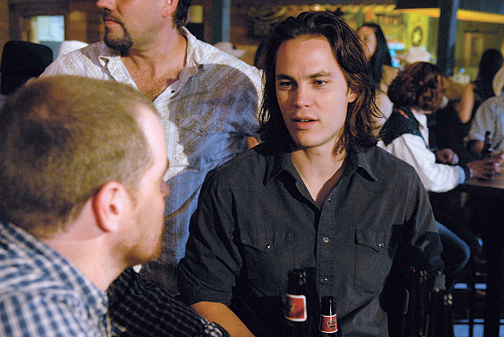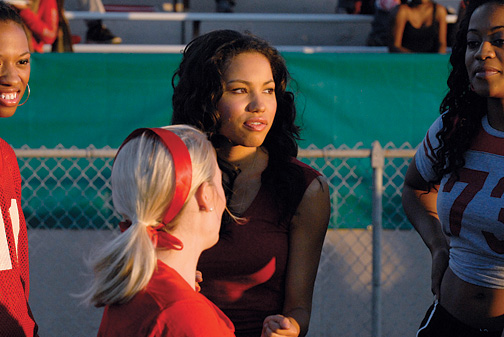In 2005, having just finished writing for FOx TV's Head Cases, Bridget Carpenter was looking for a new gig. "You've probably never heard of [Head Cases], because it only ran for two episodes," she says. Nevertheless, NBC executives in Los Angeles invited Carpenter to take a look at some of the fall season's new projects to see if she might want to contribute to any of them.

So began Carpenter's five-year stint as a writer and producer for one of television's most critically acclaimed shows. Based on the movie of the same title—which was based on the book of the same title—Friday Night Lights chronicles the often bleak, sometimes joyous lives of the residents of the fictional Dillon, Texas. Football is their life. For all the characters—the coach, his wife, and the players and their girlfriends—the game is their sole escape from an otherwise dreary hardscrabble existence in a run-down, economically depressed town.
Carpenter started out in theater after earning her master's in Brown's playwriting program. She wrote quirky, offbeat plays, mostly realistic and character-driven, but also containing flights of fancy and elements of the surreal. Her 2003 play Up was a dark, funny drama about a man who once flew high above earth in a lawn chair connected to weather balloons. (Carpenter says any resemblance to the 2009 Disney film of the same title was purely "synchronicity.") Fall, which won the prestigious Susan Smith Blackburn Prize, is a coming-of-age story of a fourteen-year-old girl dragged by her parents to a summer camp for swing dancers; it features dream sequences and dance routines. The plays were good enough for Carpenter to earn a Guggenheim Fellowship in 2002.
But she also wanted to try something new. "I thought, 'Well, I know how to write a play; I want to expand my craft,'" she says. She moved back to Los Angeles, her hometown, in 2000, and wrote for Showtime's Dead Like Me. Then came her brief stint at Head Cases and her success at Friday Night Lights.

Last July, the show took a major risk—at least in the world of network TV—by having one of the main characters, a beauty queen, undergo an abortion. "For two or three years, I pitched this idea that somebody should get pregnant, because I think that's what happens to teenage girls," Carpenter says. Typically in TV land, a pregnant character goes on to have her baby and everything works out swell. But, Carpenter says, "I wanted to tell the other story and show the situation in all its complexity."
She and the staff were able to get the episode aired by sidestepping the network's bureaucracy, she says: "We didn't ask. We just did it."

This is the final season for Friday Night Lights. "I'm so sad," Carpenter says. "It was one of the greatest experiences of my life." Nevertheless, she is on to her next project as co–executive producer of the NBC drama Parenthood. She is also adapting her play Fall into a musical and recently signed to write the book for the upcoming Disney musical, Freaky Friday. She wanted to try her hand at musicals, she says, "because every ten years, I like to learn something new."
Lawrence Goodman is the BAM's senior writer.




